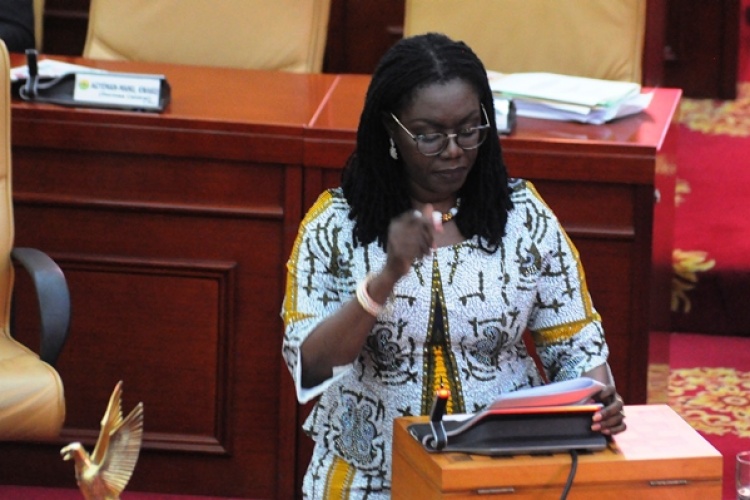adverts
The Minister for Communications and Digitalisation, Ursula Owusu-Ekuful, has announced the government’s plan to license the satellite internet network Starlink to operate in Ghana.
According to her, this was part of the government’s efforts to address the internet disruption in the country.
Briefing Parliament on the issue of internet disruptions on March 18, she said “We have licensed satellite gateway air stations, landing rights, and satellite air station networks. One web has already been licensed. Starlink is in the process of being licensed and other operators are being encouraged to land in Ghana.
adverts
“We must also invest in operationalizing RASCOM, the Regional African Satellite Company, instead of each country going alone.”
She advised organisations to take cues from these internet disruptions and store their content, databases, applications, and services in at least two tier-three or tier-four data centers in the country, located at different locations.
Additionally, she recommended making use of the National Data Center as either their primary or backup recovery data host.
Before the recent internet disruption, the minister said her outfit did not have the framework for licensing satellites; however, over the years, it has equipped itself with the requisite knowledge to license these satellites.
“The NCA did not have a framework for licensing satellites but the Authority has in the last year concluded bench-marking and learning from other jurisdictions where this has been implemented. Currently, they have developed a satellite licensing framework in Ghana which has been approved by its board and awaiting the final policy approval.
“This framework will provide the policies and rules relating to the application for frequency authorisations for satellite services in Ghana. It outlines the various categories of satellite services, the licensing requirements, and its associated fees,” she added.
In December 2023, the ministry cautioned the public to desist from purchasing items from Starlink since it was not licensed in Ghana.
The notice said,“Any entity which provides electronic communication services in Ghana without a Licence or Authorisation from the NCA is in direct violation of Section 3(1) of the Electronic Communications Act 2008, Act 775 which states that, ‘Except as otherwise provided under this Act a person shall not operate a public electronic communications service or network or provide a voice telephony service without a licence granted by the Authority’.
In this light, Madam Owusu-Ekuful assured that the ministry had performed due diligence and is ready to offer an operating license to the company to help improve access to internet.
“A draft framework was subjected to industry consultation and approved by industry. The objective of the framework is to provide increased regulatory oversight for the services, more connectivity solutions or options for consumers, and other measures,” she added.
She, however noted that the service offered by Starlink was expensive. She thus assured that there were plans to engage other sector players to cater to individuals across different economic streams.
“However, I must remind us all that the fee charged by the satellite, low-earth orbit satellite operators like Starlink for hardware and services show that they will cater for high-end value subscribers because they are expensive.
“We’re currently also having discussions about affordable back-haul satellite solutions with all satellite service providers under the auspices of the ITU. This conversation has been ongoing for a while, but I believe what has happened in the recent past will activate and energise these discussions for solutions to be reached soon.”


